How Teen Girls with Autism Find Community on TikTok
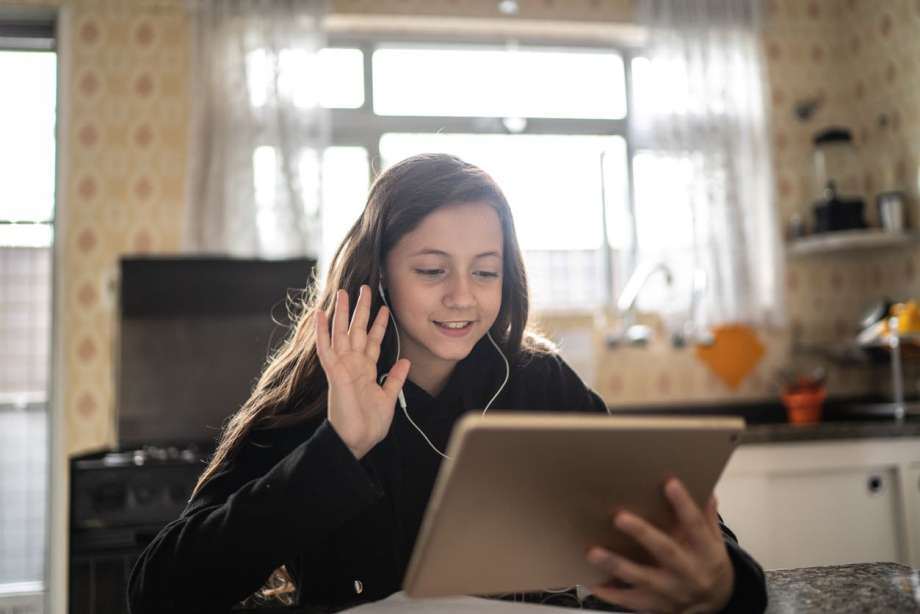
From new dance moves to viral prank trends to cultural and political commentary - TikTok truly has it all. TikTok allows anyone with a phone to quickly make and share mini-videos on any topic possible and share them online.
Today’s teens are relying more on TikTok to discover new interests, learn skills, and just connect with others. The most specific of subcultures and interests have a following on TikTok. There’s #BookTok for teens who love to read to #FitTok for workout and health advice, and there’s even the popular #MomsofTikTok community for the parents out there!
Related: 5 Ways Social Media Effects Kids’ Mental Health
TikTok Micro-Cultures and Mental Health
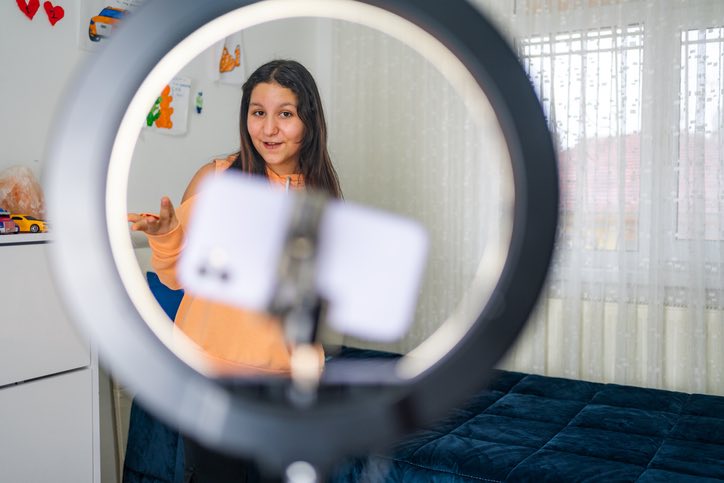
With all these cultures, sub-cultures, and micro-cultures at their fingertips, TikTok has influenced many teens to explore aspects of their mental health and identity, Teens use social media to make friends and find people who relate to their experiences.
Especially for LGBT+ teens or neurodivergent teens who grew up feeling “different” in their small hometowns, the internet has offered them a new perspective to meet people like them and be honest about their feelings without fear of judgment.
Recently, many teens with autism or who believe they may have traits of autism, are using TikTok to discover more about the autistic experience and discuss the challenges they face.
Particularly, girls and young women with autism are becoming more and more active online. Since girls are often more likely to be misdiagnosed or diagnosed with autism later in life, finding a platform to share their stories and hear from others like them has been an important part of their self-discovery.
But is it always a good idea for teens—--to be so open about life with autism spectrum disorder (ASD)?
Related: Why Puberty is Even Harder for Girls with Autism
We asked experts about the impact social media sites like TikTok have had on the autistic community and general perceptions towards those with autism, both the positives and the negatives.
Autistic Teens Experience More Online Bullying
“Unfortunately, autistic people are more likely to be cyberbullied than their neurotypical peers,” says Amy Shaffer Post, a Social Emotional Learning Counselor at Pennsylvania’s Mercersburg Academy.
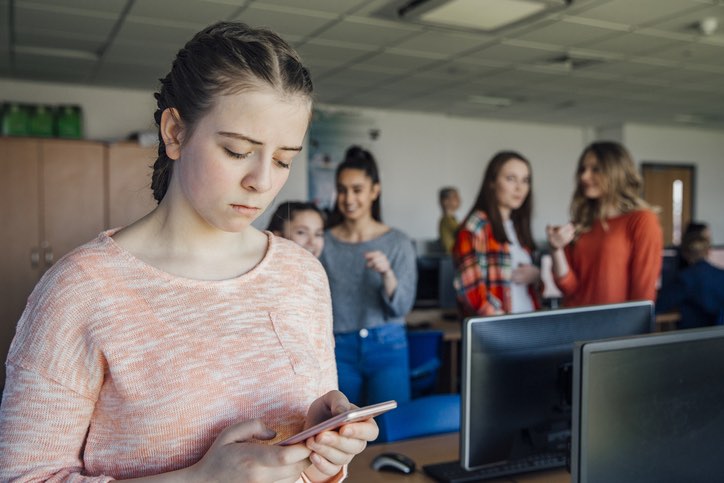
“It's important that caregivers and adults monitor what teens are doing online and provide education on staying safe online.”
Also, be cognizant of your teenager’s emotional journey through social media. This can be complex because teens with autism often struggle greatly with processing their feelings and the intentions of others.
However, as “the adult,” remind your teens of the emotional impact “comparing and contrasting” may have on them.
“Teens with autism can use TikTok as a tool to compare their journey to others, and feel discouraged that their life experience is different,” says Post. “No two people with autism look the same, thus comparisons can be quite harmful.”
TikTok Can Educate People on Autism in Girls
However, TikTok can be an amazing resource for teens with autism. “I have worked with a number of autistic teens who have found social connections online that benefit them greatly,” says Post.
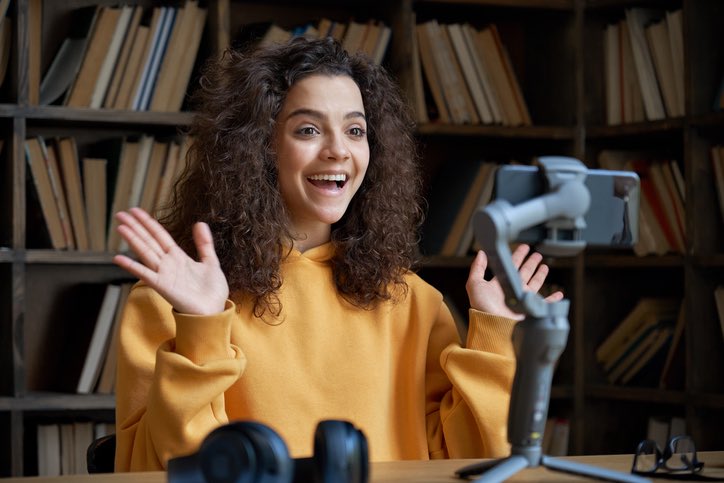
“These teens have been able to introduce themselves, establish a foundation, and create lasting friendships with their peers online.
Meeting friends online who also have autism gives teens a relatively safe place to practice their social skills.
“If they fumble, they can get up and try again without risk of embarrassment by their peers in school or in the physical community, ” Post explains.
TikTok Can Help Autistic Girls Find Connections with Others
Mental health therapist Dinisha Mingo, MS, CEO/President of MHS Behavioral Services, Inc., and Myron Mingo, Registered Behavior Technician, also weighed in on the effects of TikTok on autistic teens.

“Social media allows for connectivity with others which is necessary and healthy,” stress Dinisha and Myron. “The use of social media allows for the alleviation of anxiety, fear, and judgment in those interactions that may present when engaging in person.”
Plus, teens who dictate their lives with ASD are educating others about special needs. This is an important and impactful way to teach teens about autism, even if they themselves don’t have the diagnosis, or think they might and want to hear someone else’s story.
“Social media says Dinisha and Myron, also helps teens with ASD find community resources and support and learn tips on managing some of the symptoms of ASD.
“Most importantly, social media can normalize the differentness of those with ASD.”
Teens are Inspired by Other Autistic Experiences

Teens are influenced by what they watch on TV, the music they listen to, and what they see online. TikTok can be a great tool to help normalize the autistic experience and make people with autism feel less like outcasts when compared to their peers.
“Watching another teen on TikTok share their life as someone with ASD can be motivational. Look how popular the reality TV show, Love on the Spectrum is – viewers with and without ASD eagerly tune in to see the dating journeys of adults around the world with ASD,” says Dinisha and Myron.
Watching someone else with autism have romantic relationships and make friendships can be comforting and motivational to someone else with ASD.
“Many quality friendships can come from social media, and it also gives those with ASD an opportunity to be exposed to, and meet, new people they may not otherwise have access to,” they explain.
Keeping Autistic Teens Safe Online
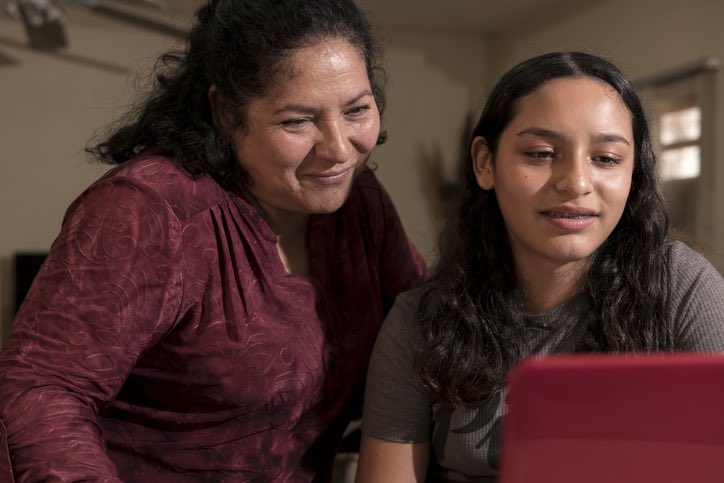
But again—teens need to be cautious when interacting online with strangers. No giving out your phone number so fast, sharing the name of your school, or sending selfies, for example, are some good ground rules.
“I often teach kiddos and teenagers safe and appropriate ways to engage with others through social media,” says Myron Mingo. “Once the safety rules are established, social media can be a wonderful tool to promote social interaction and engagement in the ASD community.”
Adds Myron: “It’s important for all people to be mindful of the amount of their social media consumption. It’s fun and should be used intentionally whether for fun, a mental break, or creating connections with others.”
Autistic girls are drawn to TikTok for the new perspectives and community they’re finding, but it is equally important that they feel supported in their real life to be their authentic selves.
-----
Expert Contact Information:
Dinisha Mingo and Myron Mingo
Educators, Therapists, Experts
Publicist: Ruth Furman: ruth@ruthfurman.com
Amy Shaffer Post
Social-emotional learning counselor
Mercersburg Academy
Publicist: Jodi Lin Gresham
jodilin@jodilinpr.com

